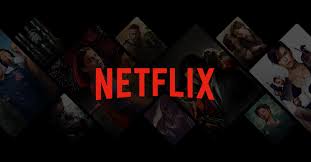Netflix Seeks Telco Partnership to Unlock African Market.
With their well-established customer bases and online payment methods, operators could prove to be lynchpin partners in unlocking African markets for the streaming service. In recent months, Netflix...

With their well-established customer bases and online payment methods, operators could prove to be lynchpin partners in unlocking African markets for the streaming service.
In recent months, Netflix has been strengthening its focus on Africa, both in terms of gaining new subscribers and diversifying its content.
Back in May, Netflix launched an initiative called ‘Made In Africa, Watched by the World’, which included the adding a large number of African shows, films, and documentaries to their portfolio.
“We want you to know that if you’re looking for the best African stories, then you will find them on Netflix. We are going to expand heavily to ensure that goal is met,” said Dorothy Ghettuba, Netflix head of Africa originals.
But more than just diversifying their video offerings, this also a process of proving the company’s renewed commitment to the African continent, supporting local film makers and creating content of interest to African consumers.
For a myriad of reasons, Africa has proved a very hard nut to crack for Netflix. For a company that has almost 200 million subscribers worldwide, only around 1.4 million of these are in Africa.
While there are many hurdles to overcome here, from pricing to internet access, Netflix firmly believes that premium video services can be profitable on the African continent; indeed, its continental rival, pay-TV firm Multichoice Group, currently boasts around 20 million subscribers in almost 50 African countries.
Multichoice also recently launched a direct streaming competitor to Netflix, called Showmax.
Recently, Neflix has expanded trials of mobile-only subscription plans in South Africa and Egypt to include additional African nations, including Nigeria, aiming to boost overall subscriptions.
This seems a sensible strategy; as a continent, Africa’s mobile penetration rate far exceeds that of fixed broadband, meaning for many potential customers mobile is the only way to access video streaming services.
Nonetheless, the cost of these plans, though far cheaper than a traditional subscription, still remains prohibitive. In Nigeria for example, the Netflix mobile subscription plan costs around $2.65 per month, while a classic subscription costs around $7.50.
However, the problem here becomes apparent when you consider that around 40% of the country’s almost 200 million people still live on less than $1 a month.
While mobile internet access is certainly rising in African countries – in Nigeria, it is expected to reach 101 million mobile internet users by 2021 – for now video streaming services remain out of reach for much of the population.
But an interesting solution could be found in the form of telco partnerships. With their existing subscriber bases, telcos offer a unique opportunity to for a company like Netflix to piggyback on their payment infrastructure, allowing customers to simply add the service to their connectivity bill.
Speaking to TechTV ahead of the company’s third-quarter results, Ms Ghettuba noted that the company already has partnerships with Vodacom and Telkom South Africa, suggesting that the company was on the look out for further tie-ups.
“Given the low credit card penetration across the continent […] we have partnered with local telcos […] for their customers to be able to add Netflix subscriptions to their bills,” she said.
She noted that the company’s next African target market would be Kenya, meaning there could be opportunities on the cards for the likes of Safaricom, which currently dominates the Kenyan mobile market.
Netflix believes Africa is a continent on which its streaming services have a bright future and working closely with telcos could be the key to overcoming some of its major challenges. For now, however, the company will have to settle for expanding its video library until further deals come to light









No Comment! Be the first one.